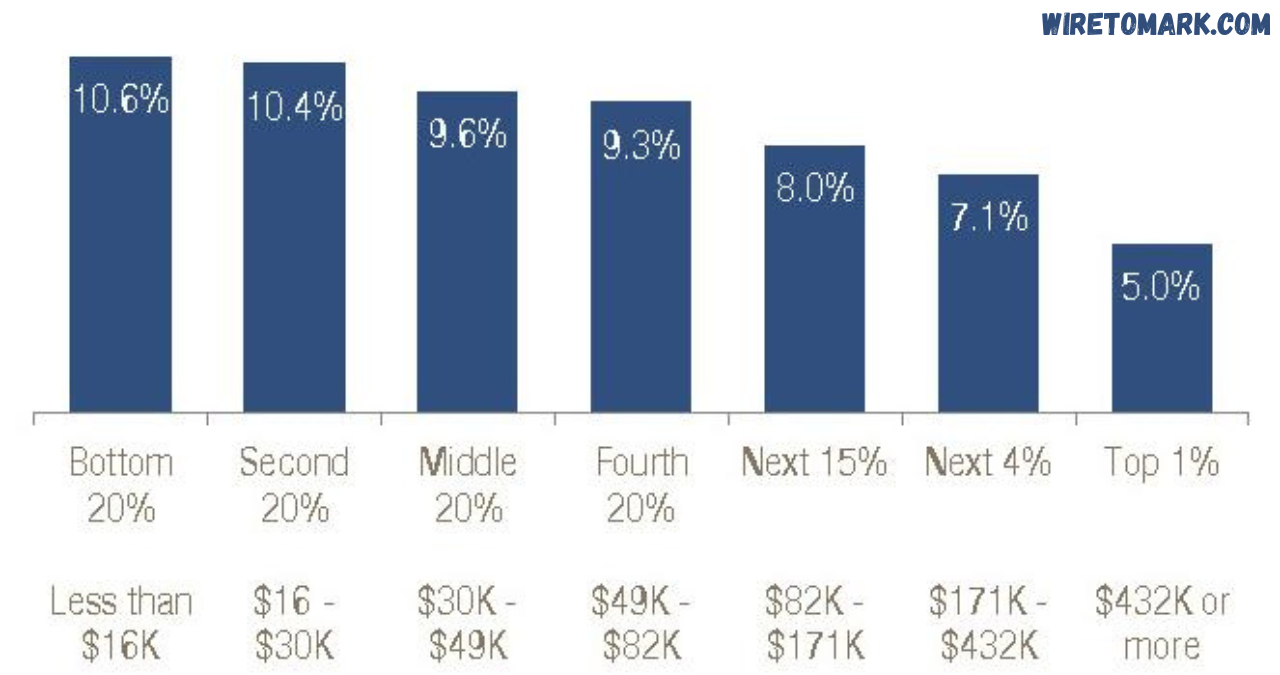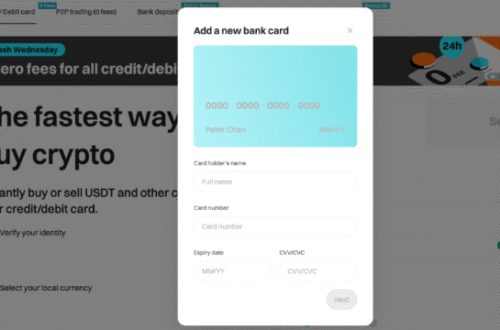When it comes to managing expenses or running a business in New Jersey, understanding how the NJ sales tax works is more than just useful — it’s essential. This tax affects nearly every purchase you make, from grabbing a coffee to buying furniture. While it might not always be front of mind, it’s always present in the background of your transactions.
For residents, visitors, and especially business owners, knowing how sales tax applies can help avoid unexpected costs, stay compliant with state regulations, and even save a few bucks in the long run. So, let’s break it all down in a way that’s simple, straightforward, and totally jargon-free — no legal mumbo-jumbo here.
How NJ Sales Tax Affects Everyday Shoppers
Sales tax in New Jersey might seem straightforward at first — you make a purchase, and you see a small percentage added to your bill. But it goes a little deeper than that. For the average shopper, the NJ sales tax can influence decisions about where, when, and even how to shop.
For instance, New Jersey’s base sales tax rate is slightly lower than some neighboring states, which can make shopping here a bit more appealing. There are also special tax exemptions on items like most groceries, clothing, and prescription medications — a nice bonus for those trying to stretch their budgets.
It’s not just about what you pay, but also what you don’t have to. If you’ve ever crossed state lines to buy something big, like electronics or furniture, there’s a good chance you’ve noticed the difference in tax rates. That’s why understanding NJ’s specific tax rules can help you make smarter purchasing choices.
NJ Sales Tax Rules for Small Businesses
Running a small business in New Jersey? Then understanding NJ sales tax isn’t just helpful — it’s critical. Whether you own a local coffee shop or operate an online boutique, collecting and remitting the correct sales tax keeps your business in the state’s good graces.
If you’re selling taxable goods or services, you’re required to collect sales tax from your customers and submit it to the state. It’s your responsibility to stay updated on what’s taxable and what’s not. And yes, those rules can change from year to year, which is why keeping an eye on state updates is part of smart business operations.
The good news? There are plenty of resources and tools provided by the state that make tracking and remitting taxes simpler than ever. Many point-of-sale systems now calculate tax automatically, and filing online is quick and efficient. Still, a little education goes a long way — especially when it helps you avoid penalties down the road.
What Makes NJ Sales Tax Different from Other States
One thing that stands out about NJ sales tax is that it’s relatively friendly to consumers when compared to other parts of the country. While some states impose higher rates or additional local sales taxes, New Jersey keeps things mostly consistent across the board.
For example, there’s no separate city or county sales tax in New Jersey — the state handles it all. This makes the process a lot simpler for both shoppers and sellers. Whether you’re in Newark or Cape May, the rate stays the same unless you’re in a designated Urban Enterprise Zone where reduced tax rates apply.
Another unique aspect is how New Jersey handles tax on digital goods and services. Some streaming subscriptions, downloadable music, and even cloud-based software can be taxable depending on how they’re delivered. As digital products become more common, these tax rules are becoming more important to understand.
Items That Are Exempt from NJ Sales Tax
New Jersey offers several exemptions from sales tax that benefit both everyday consumers and certain types of businesses. Knowing which items are tax-free can help you plan your spending more effectively and even cut costs in surprising ways.
Some of the biggest exemptions include most unprepared food items, clothing (excluding accessories and some specialty items), and prescription medications. If you’re shopping for essentials, chances are you’re not paying sales tax on them — a nice break in today’s economy.
Businesses involved in manufacturing or agriculture may also be eligible for tax exemptions on certain equipment or supplies. If you’re unsure whether an item is taxable, the NJ Division of Taxation website provides a comprehensive list to help you out. Always double-check, especially when making large purchases.
Understanding Use Tax and Out-of-State Purchases
A lot of people think they can dodge taxes by buying something online or in another state. But that’s where New Jersey’s use tax comes into play. If you bring taxable goods into NJ without paying proper sales tax, you’re technically required to pay use tax on those items.
Use tax is essentially NJ sales tax in disguise — the state’s way of making sure all purchases are treated equally. So if you order a new TV from an out-of-state retailer that doesn’t charge you sales tax, you’re supposed to report and pay the equivalent tax when filing your taxes.
Of course, most individuals don’t even realize this responsibility exists, but the state is becoming more proactive in tracking it. For businesses, this is even more important, especially if you’re regularly purchasing supplies or products from out of state.
How NJ Sales Tax Applies to Online Sales
With the explosion of e-commerce, sales tax rules for online businesses have evolved dramatically. Thanks to recent legislation, even businesses with no physical presence in New Jersey may be required to collect NJ sales tax if they exceed certain sales thresholds.
This is known as economic nexus. If an online retailer sells more than a specific dollar amount or number of transactions into New Jersey, they must collect and remit sales tax just like a local business. For customers, this means you’ll see tax added to your cart, even if the company is based across the country.
For sellers, this means keeping accurate records and possibly registering for a New Jersey tax ID number. While this adds a layer of complexity, it ensures a level playing field between online retailers and local brick-and-mortar shops.
How to Register and File for NJ Sales Tax
If you’re starting a business in New Jersey, one of your first steps will be registering for sales tax. This involves applying for a New Jersey tax ID through the Division of Revenue and Enterprise Services. It’s a relatively simple process and can be done entirely online.
Once you’re registered, you’ll receive instructions on how to file — typically quarterly or monthly depending on your revenue. The state’s online portal makes it easy to report your earnings and remit the correct amount of tax. It’s crucial to file on time, even if you didn’t collect any sales tax during the reporting period.
Missing a filing or paying late can result in penalties and interest, which can add up fast. Staying on top of your deadlines and maintaining organized records is key to managing sales tax effectively. If in doubt, a tax professional can guide you through the setup and filing process.
Penalties for Failing to Comply with NJ Sales Tax Laws
Sales tax might seem small per transaction, but the penalties for not complying can be significant. Whether you’re a business owner who forgets to file, or an individual who fails to pay use tax, the state doesn’t take these violations lightly.
Common penalties include late fees, interest charges, and potential audits. For businesses, repeated non-compliance can result in your business license being suspended or even revoked. And if the state believes there’s been intentional fraud, things can escalate quickly — including legal action.
The best way to avoid trouble? Stay informed, stay organized, and don’t be afraid to ask for help. Hiring a tax expert or using trusted accounting software can save you a lot of headaches and money in the long run.
Sales Tax Holidays in NJ – Do They Exist?
Unlike some states, New Jersey doesn’t typically offer large-scale sales tax holidays — those weekend-long events where shoppers can buy certain items tax-free. However, there are exceptions for certain products or industries depending on legislative changes.
In recent years, there have been limited-time tax breaks on school supplies, hurricane preparedness items, or even energy-efficient appliances. These aren’t permanent, and they’re usually introduced as temporary relief during specific periods.
To take advantage of these events, stay tuned to announcements from the state or news outlets. It’s a great way to save, especially if you have kids in school or a big purchase on the horizon. Keep an eye out each year — you never know what items might get included next time.
Final Thoughts on Navigating NJ Sales Tax
Sales tax might not be the most exciting topic in the world, but it’s one that touches everyone in New Jersey in one way or another. Whether you’re shopping for back-to-school clothes, launching a side hustle, or making a big-ticket purchase, understanding NJ sales tax puts you in a better position to budget smartly and avoid unnecessary fees.
While it might seem like just a few extra cents here and there, it adds up — both in terms of cost and compliance. Staying informed and making wise choices goes a long way toward making your money work for you, not against you. if you’re running a business, investing in the right tools and resources can save you a lot of future trouble. And if you’re a consumer, knowing when and where tax applies helps you shop smarter.
Frequently Asked Questions (FAQs)
What is the current NJ sales tax rate?
The statewide rate is currently 6.625%. However, certain zones, like Urban Enterprise Zones, may offer reduced rates for specific purchases.
Are groceries taxed in New Jersey?
Most unprepared food items are exempt from NJ sales tax. Prepared meals, restaurant food, and certain snacks may still be taxed.
Do I have to pay NJ sales tax when shopping online?
Yes. If the online retailer meets the state’s economic nexus requirements, they are required to charge you NJ sales tax at checkout.
Is clothing taxed in New Jersey?
Most clothing is exempt, but accessories, sports equipment, and certain specialty items may still be subject to sales tax.
What happens if I don’t pay use tax on out-of-state purchases?
If discovered, you could owe back taxes along with interest and penalties. Businesses are especially scrutinized for compliance in this area.



